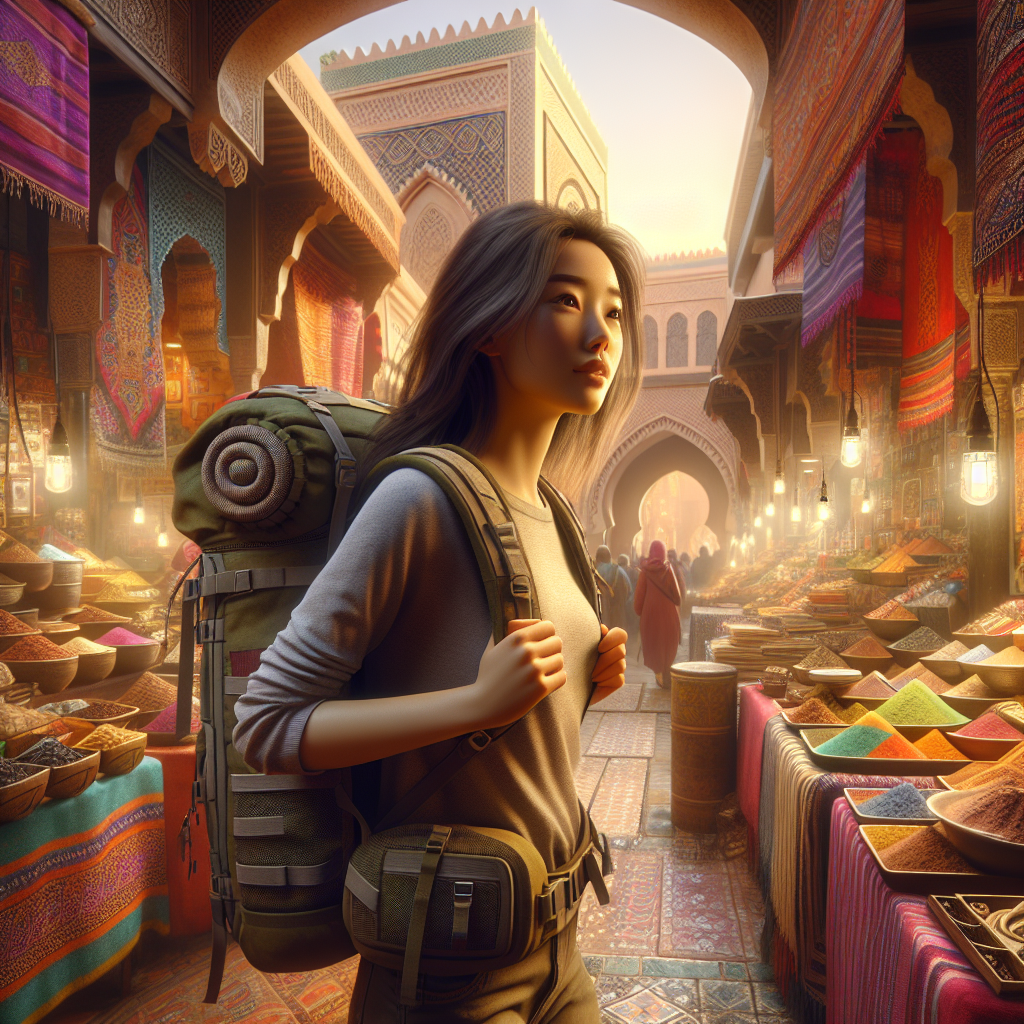Safety in Morocco: Essential Advice for Young Backpackers
Morocco, with its vibrant cities, sprawling markets, ancient medinas, stunning landscapes, and welcoming locals, is a magnet for young backpackers seeking adventure and cultural immersion. While Morocco is widely considered safe for tourists, like any travel destination, it has its share of safety concerns that travelers should be aware of. This guide aims to equip young backpackers with essential safety advice to ensure a memorable and secure trip through Morocco.
Familiarize Yourself with Local Customs and Laws
Understanding and respecting local customs and laws is paramount in Morocco. Moroccan culture is deeply rooted in Islamic traditions, and showing respect towards local customs will not only keep you safe but also enrich your travel experience. Dress conservatively, especially when visiting mosques and traditional neighborhoods, to avoid unwanted attention. Public displays of affection should be minimized, and alcohol consumption should be restricted to licensed restaurants, bars, or private spaces. It’s also advisable to learn a few basic phrases in Arabic or French, as this can greatly enhance your interaction with locals and demonstrate your respect for their culture.
Be Street Smart in Crowded Places
Morocco’s bustling markets, or souks, and crowded medinas are enchanting but can also be overwhelming and present risks for petty crime, such as pickpocketing. Always keep your belongings secure and be wary of distractions or overly friendly strangers offering unsolicited help or tours. It’s wise to carry a copy of your passport and leave the original along with other valuables in a safe place at your accommodation. When navigating through crowded areas, maintain a confident demeanor and be assertive in declining unwanted offers or advances.
Transportation Safety
When traveling between cities or exploring rural areas, opt for registered taxis or reputable bus companies. Petit taxis (small taxis) operate within cities, while grand taxis (larger shared taxis) are used for longer distances. Always agree on a fare before starting your journey to avoid overcharging. For overnight travel or long distances, consider using Morocco’s train network, which is generally reliable and safe. Renting a car can offer flexibility for exploring off-the-beaten-path destinations, but be cautious of erratic driving behaviors and unfamiliar road conditions.
Food and Water Safety
Moroccan cuisine is a delightful experience, with a plethora of flavors and dishes to explore. However, to avoid foodborne illnesses, eat at busy restaurants with high turnover and ensure that street food is cooked to order and served hot. Drinking bottled water is recommended to prevent waterborne diseases. Additionally, be cautious of consuming fresh juices or salads that may have been washed in tap water.
Respect the Desert
Many backpackers are drawn to the majestic Sahara Desert for camel treks and overnight camping. While this can be an unforgettable experience, the desert environment poses its own set of challenges. Always book tours through reputable agencies, stay hydrated, protect yourself from the sun, and follow your guide’s instructions. The desert can be disorienting, and temperatures can vary dramatically, so proper preparation is crucial.
Stay Informed
Keep yourself updated on local news and any travel advisories issued by your government. Registering with your embassy upon arrival can also provide an extra layer of safety, as they can assist in case of emergencies. Apps and social media groups dedicated to travelers in Morocco can be valuable resources for real-time information and advice.
Accommodation Safety
When selecting accommodation, prioritize places with positive reviews from fellow travelers, particularly in terms of safety and location. Hostels, guesthouses, and traditional riads (Moroccan houses) often offer a chance to meet other travelers and share tips. Ensure that your accommodation has good security measures, such as lockers for valuables and 24-hour reception.
FAQs for Young Backpackers in Morocco
Q: Is it safe to travel solo in Morocco?
A: Yes, many solo travelers find Morocco to be a safe destination. However, it’s important to take standard precautions, such as avoiding poorly lit areas at night and staying in accommodations with good security.
Q: How should I dress while traveling in Morocco?
A: Dressing conservatively is recommended, especially for women. Long skirts or trousers and tops that cover the shoulders are advisable to respect local customs and avoid unwanted attention.
Q: Can I drink tap water in Morocco?
A: It’s best to stick to bottled water or water that has been purified to avoid illness.
Q: What should I do if I get lost in a medina?
A: Medinas can be labyrinth-like, but locals are generally helpful. However, be cautious of individuals offering to guide you for a fee. Instead, try to find a shopkeeper or family to ask for directions. Carrying a map or having a GPS-enabled device can also be invaluable.
Q: Are there any health concerns I should be aware of?
A: No mandatory vaccinations are required for Morocco, but it’s wise to be up-to-date on routine vaccines. Consider vaccinations for Hepatitis A and Typhoid, which can be transmitted through contaminated food or water.
Recreating the Moroccan Experience
Bringing a piece of Morocco back home goes beyond souvenirs. Engage with local artisans and learn a craft, such as pottery or weaving, to understand the intricacies of Moroccan artistry. Cook traditional dishes using authentic spices that you bring back, and incorporate Moroccan decor elements, like lanterns or rugs, into your home to keep the essence of your journey alive.
Exploring Morocco safely as a young backpacker is about balancing adventure with awareness. By adhering to these safety tips and embracing the local culture with respect and curiosity, you can have a profoundly enriching travel experience that will stay with you for a lifetime.
